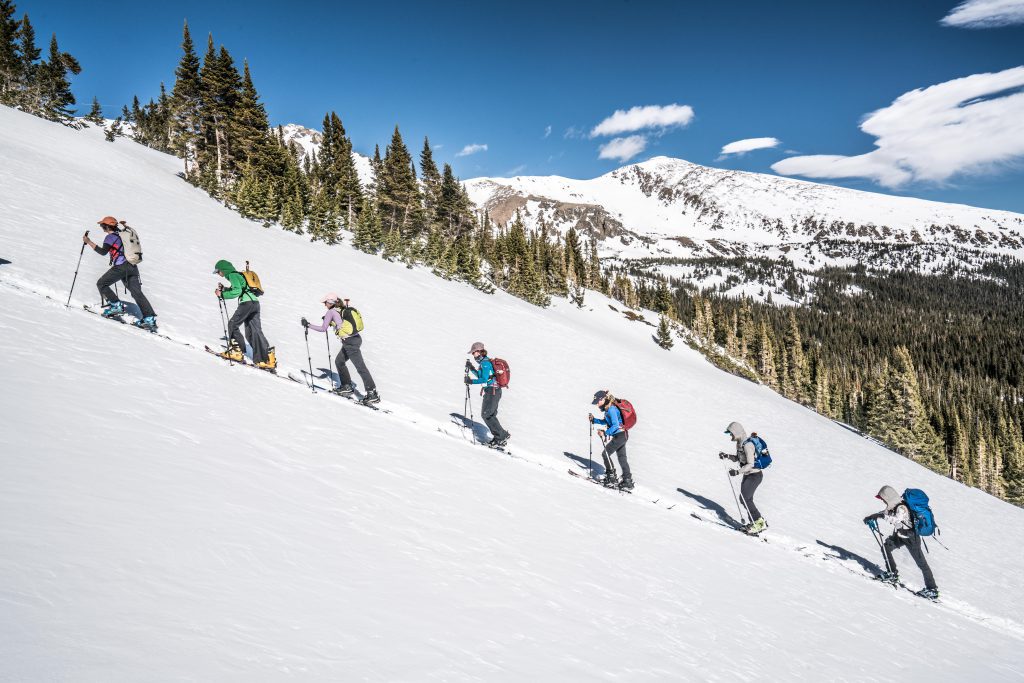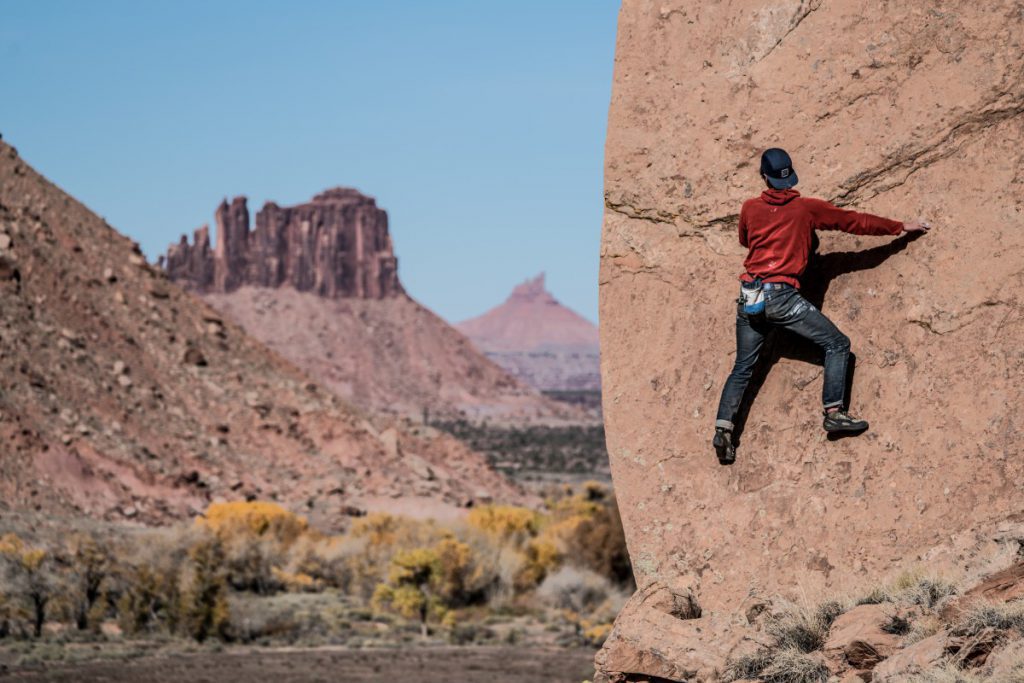

Spend a semester exploring the Colorado Rocky Mountains, Greater Canyonlands of Utah, and vast deserts of Arizona. You’ll go into great depth to advance your backcountry wilderness skills while studying pressing environmental issues and participating in real-world conservation service work
Program Highlights
- Travel through Colorado’s highest peaks, the canyons of Utah, and expansive deserts of Arizona.
- Learn and practice backpacking, rock climbing, whitewater rafting and backcountry skiing skills.
- Learn to comfortably live and travel in the wilderness destinations for extended periods of time.
- Investigate pressing conservation issues in the US public land management system while working with service partners to protect and restore these wild places.
- Plan and execute a student-led expedition in the labyrinthine canyons of Utah.
- Become part of an incredible community dedicated to personal growth, outdoor exploration, and adventure.
Program Overview
In the Spring, you begin your semester in Phoenix, Arizona, where you meet your instructors and other members of the group. From there, you’ll begin prepping for your first backpacking expedition in the Kofa National Wildlife Refuge. While traveling through vast desert landscapes and rugged terrain, you’ll gain all of the essential skills to live and travel comfortably in a backcountry environment. Through the challenges and adventures that backcountry travel presents, you will get to know one another and begin forming the strong community that will be the foundation of your semester. In the Fall Semester, this will be your last backpacking trip and you will have the opportunity to design your student planned expedition during this section.
You’ll then transition to the Paria Canyon Wilderness, which spans the Utah-Arizona border. Here, you’ll spend 5 days backpacking through one of the longest, continuous, and most dramatic slot canyons in the world. The canyon ends at Lee’s Ferry, at the bottom of the Marble Canyon section of the Grand Canyon. From here, you’ll take a break from traveling by foot and will begin a 5 day boat trip down one of the most iconic stretches of river in the world. During this time, you’ll study the history of public land management in the West and how the Grand Canyon stands as an excellent case study of conservation, recreation, and tribal lands in the United States.
Leaving the desert for a while, you’ll travel to Leadville, Colorado and HMI’s campus. Here, you’ll spend a few days learning and practicing telemark skiing at a local ski area just outside of town. After a few days of gaining foundational movement skills, you’ll embark on a 10-day backcountry ski expedition in the Sawatch Range. You’ll pull all of your gear by sled, build snow shelters to sleep and cook in, and learn about avalanche awareness and risk management. You’ll also explore topics such as recreation and tourism and climate change impacts on snow pack and the ski industry.
Your final month will spent in the Greater Canyonlands of Utah. First, you’ll basecamp near Moab, Utah, a mecca of outdoor recreation surrounded by National Parks and other worldy landscapes. Here, you’ll split your time learning to climb on the sweeping sandstone walls that are iconic of the area and working on a service project to maintain and restore this fragile desert landscape.
The final section of your semester will be spent on a two-week technical canyons student planned expedition in the White Canyon and Dark Canyon complex. Set within the boundaries of Bears Ears National Monument, this area is known for the vast labyrinth of deep slot canyons and wide open mesas along with a rich cultural history. You’ll also do a backcountry service project with the Southern Utah Wilderness Alliance. This final expedition draws on all the skills you’ve practiced and refined throughout the semester; you’ll be given guidelines and parameters from which you plan and execute the expedition as a group. You’ll also complete a 24-36 hour solo during this time and conclude the course with several final reflection projects that you share with the group.

